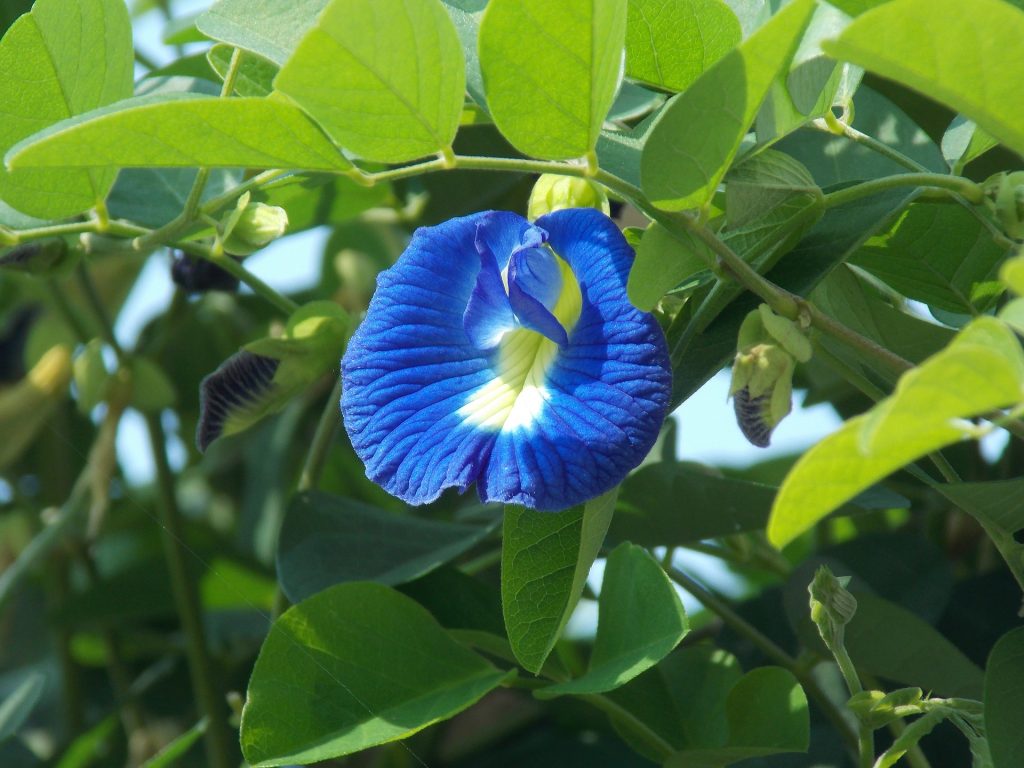 Clitoria ternatea is a flowering plant belonging to the fabaceae or legume family of plants. Common names for Clitoria ternatea include blue pea, Asian pigeonwings, bluebellvine, butterfly pea, cordofan pea and Darwin pea. The plant grows native in parts of Asia. The flowers of the plant are used as a food dye, but may also have medicinal properties. In this regard it is through that extracts of the plant may affect the central nervous system, and this may in turn cause significant antidepressant, nootropic, anxiolytic and anti-stress effects. For example, in one study, researchers administered extracts of the aerial parts of Cliotira ternatea to mice and observed significant anxiolytic effects. Further, the extracts also appeared to confer improved memory on the animals. There was also an antidepressant effect observed by the researchers. Lastly the extracts also reduced ulcer formation and convulsions, suggesting that they conferred both an anti-stress and anticonvulsant effect on the mice.
Clitoria ternatea is a flowering plant belonging to the fabaceae or legume family of plants. Common names for Clitoria ternatea include blue pea, Asian pigeonwings, bluebellvine, butterfly pea, cordofan pea and Darwin pea. The plant grows native in parts of Asia. The flowers of the plant are used as a food dye, but may also have medicinal properties. In this regard it is through that extracts of the plant may affect the central nervous system, and this may in turn cause significant antidepressant, nootropic, anxiolytic and anti-stress effects. For example, in one study, researchers administered extracts of the aerial parts of Cliotira ternatea to mice and observed significant anxiolytic effects. Further, the extracts also appeared to confer improved memory on the animals. There was also an antidepressant effect observed by the researchers. Lastly the extracts also reduced ulcer formation and convulsions, suggesting that they conferred both an anti-stress and anticonvulsant effect on the mice.

A number of phytochemicals that might be responsible for the central nervous system effects of the Clitoria ternatea have been isolated. These include triterpenoids, flavonoids, including flavonols and anthocyanins, as well as steroid compounds. A number of cyclic peptides called cliotides have also been isolated from the plant. Evidence suggests that extracts of the plant may work through modification of the acetylcholine and serotonin systems.
Eat Well, Stay Healthy, Protect Yourself
RdB
